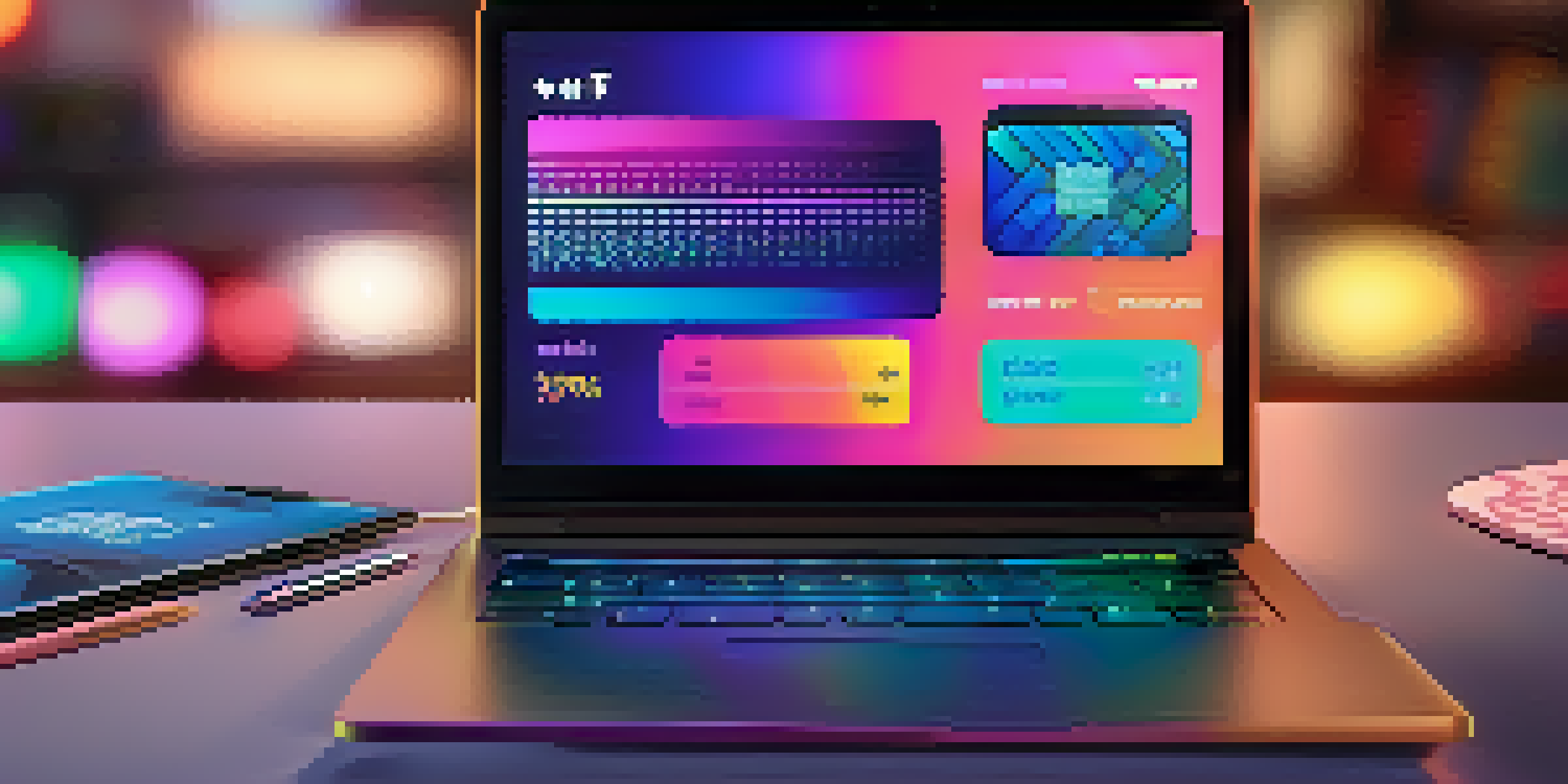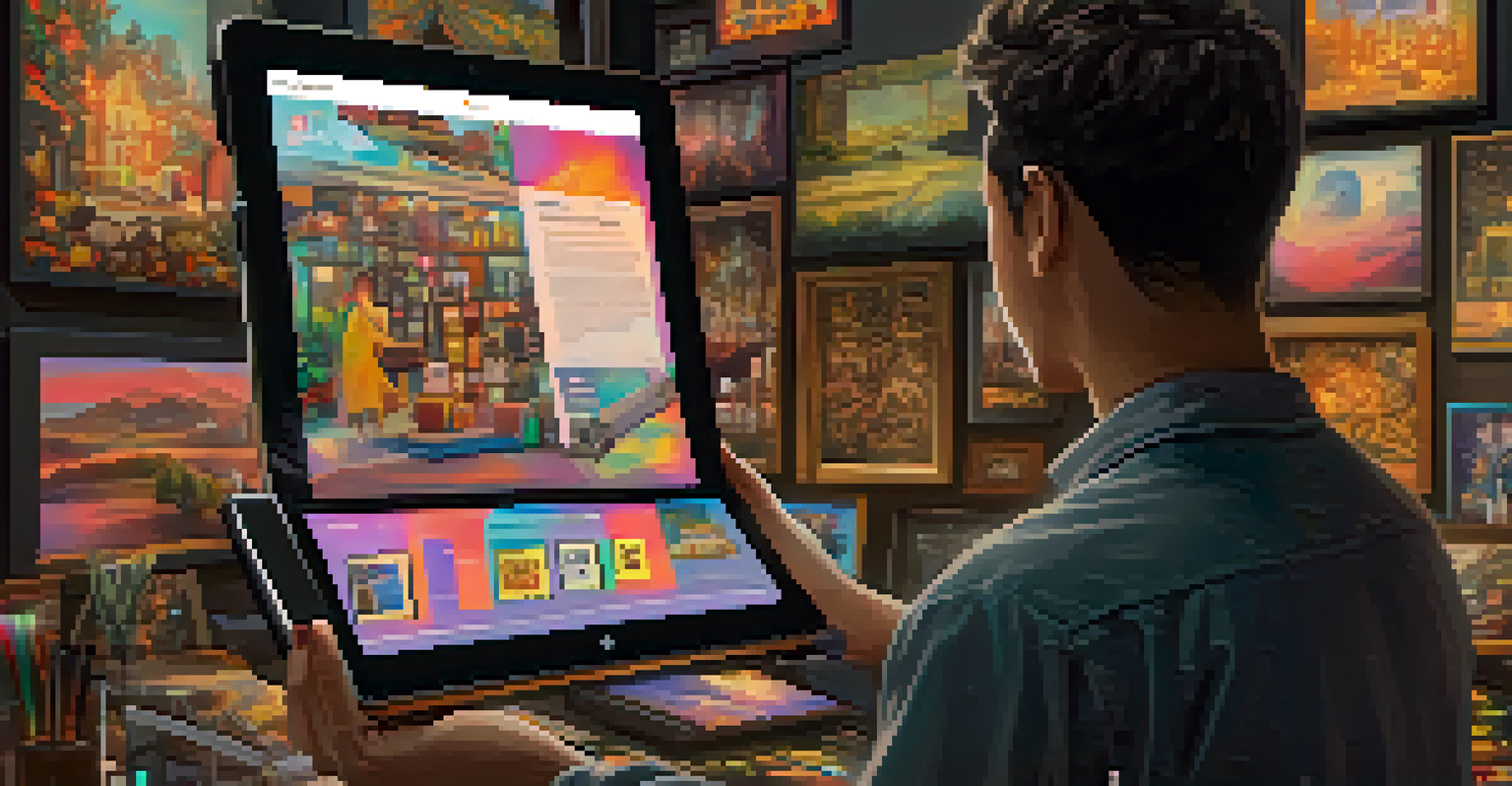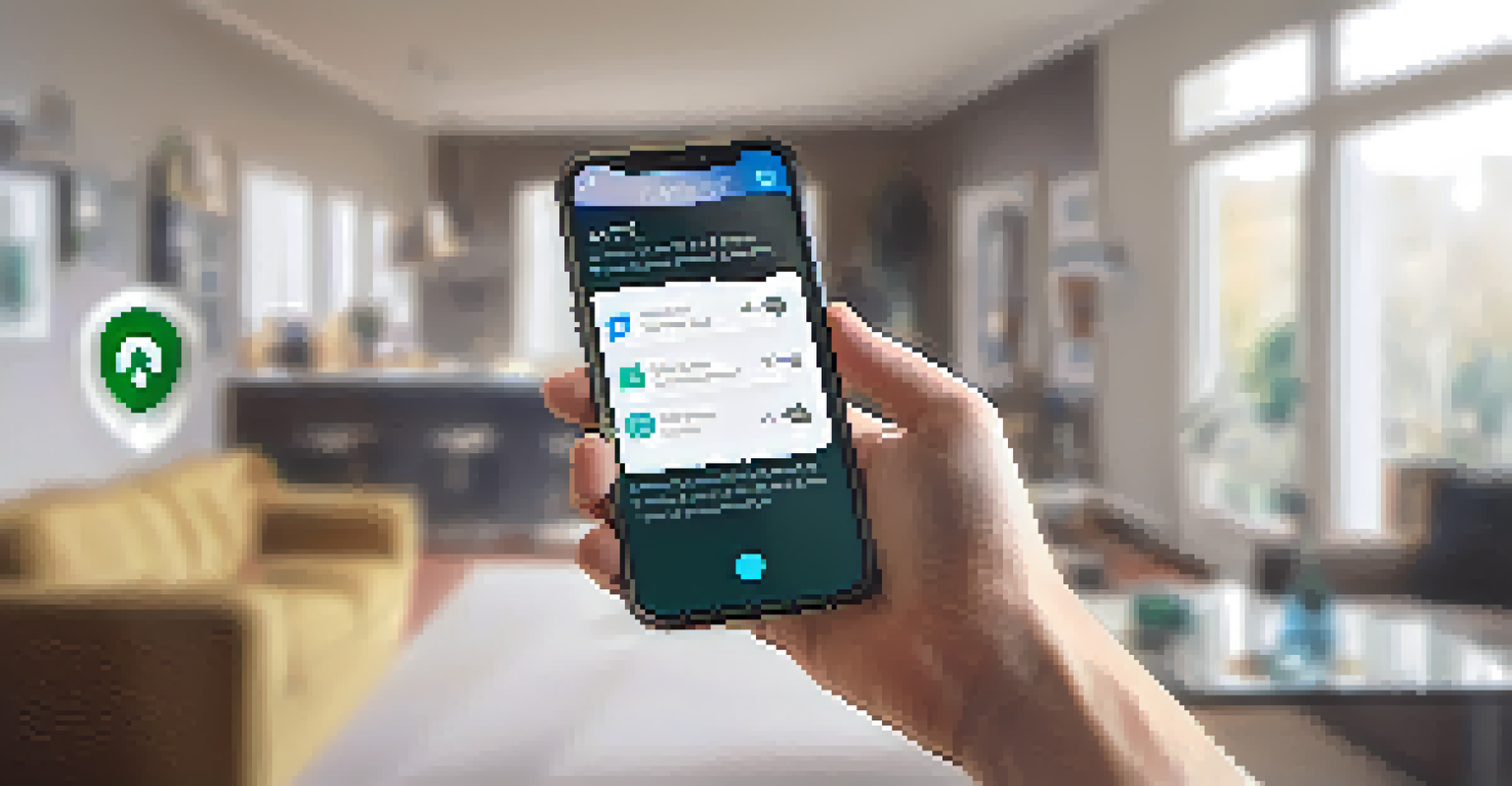Protecting Your Identity While Buying NFTs: A Guide

Understanding NFTs and Their Vulnerabilities
Non-fungible tokens (NFTs) are unique digital assets that can represent art, music, or any form of digital content. As exciting as the NFT space is, it comes with certain vulnerabilities that can put your identity at risk. Just like buying anything online, purchasing NFTs requires caution to avoid scams and data breaches.
The blockchain is the new digital frontier. Its potential is immense, but so are the challenges it presents, especially in terms of security.
The decentralized nature of blockchain technology makes NFTs appealing, but it can also complicate identity protection. Unlike traditional transactions, where banks often intervene, NFT transactions can occur without much oversight. This lack of regulation can leave buyers exposed to fraud if they’re not careful.
For instance, imagine buying a rare digital artwork only to find out later that the seller misrepresented the piece. Not only could you lose your investment, but your personal information might also be compromised if you didn’t take the right precautions.
Use a Secure Wallet for Your NFTs
When buying NFTs, using a secure digital wallet is paramount. A wallet acts like a bank account for your digital assets, and choosing the right one can significantly enhance your security. Look for wallets that offer multi-factor authentication (MFA) and have a good reputation in the crypto community.

There are two main types of wallets: hot wallets, which are connected to the internet, and cold wallets, which store assets offline. While hot wallets are convenient for transactions, they can be more susceptible to hacks. Cold wallets, on the other hand, provide an extra layer of security, making them ideal for long-term storage of valuable NFTs.
Protect Your Identity When Buying NFTs
Navigating the NFT space requires caution to safeguard your personal information from potential scams and data breaches.
For example, using a reputable cold wallet can help protect your digital assets from online threats. By keeping your NFTs offline, you reduce the chances of someone accessing your wallet without your consent, thus safeguarding your identity and investment.
Choose Reputable NFT Marketplaces
Not all NFT marketplaces are created equal, and choosing a reputable platform is crucial for protecting your identity. Established marketplaces like OpenSea, Rarible, and Foundation have built trust within the community and offer security features to help protect buyers. When selecting a marketplace, do your research and read reviews from other users.
In the world of digital assets, caution is your best friend. Always verify, always protect.
Some lesser-known platforms may lack proper security measures, making them prime targets for scammers. If a deal seems too good to be true, it probably is! Always verify the authenticity of the marketplace before making any purchases to avoid falling victim to fraud.
For instance, a friend of mine once bought an NFT from an unverified site and ended up losing both his investment and personal information. By sticking to reputable marketplaces, you can minimize risks and enjoy a safer NFT buying experience.
Be Cautious With Personal Information
When engaging in NFT transactions, be mindful of the personal information you share. Providing too much information can lead to identity theft or unauthorized access to your accounts. Always think before you click 'submit' and consider whether the information requested is necessary for the transaction.
For example, while some platforms may require an email address for account creation, avoid sharing sensitive information such as your home address or phone number unless absolutely necessary. Use a separate email address for NFT transactions to keep your primary email private.
Use Secure Wallets for Your Assets
Choosing a reputable digital wallet, especially a cold wallet, is crucial for enhancing the security of your NFTs.
Implementing these simple precautions can help you maintain a level of anonymity while participating in the NFT market. Just like you wouldn’t share your social security number with a stranger, be cautious about what you disclose online.
Verify NFT Ownership and Authenticity
Before purchasing an NFT, always verify the ownership and authenticity of the asset. Scammers sometimes sell counterfeit or stolen NFTs, which can leave you in a difficult position. Many platforms offer verification tools to check the authenticity of an NFT, so take advantage of these features.
Look for indications that the NFT is linked to a verified creator or seller. If possible, reach out to the seller directly to ask questions about the NFT’s history. This not only ensures you’re buying a legitimate product but also helps you build trust with the seller.
For instance, I once came across an NFT that looked fantastic, but a quick verification revealed it was a copy of someone else's work. By being diligent about checking authenticity, you can protect your investment and identity from potential scams.
Stay Updated on Security Practices
The NFT landscape is constantly evolving, and so are the tactics used by cybercriminals. Staying informed about the latest security practices can help you navigate the market safely. Subscribe to newsletters, follow relevant blogs, and join communities that discuss NFT security to keep your knowledge up to date.
Regularly reviewing your security settings on digital wallets and marketplaces is also a good practice. Many platforms release updates that can enhance security features, so make sure you’re taking advantage of these improvements. A little vigilance can go a long way in protecting your identity.
Verify NFT Authenticity Before Purchase
Always check the ownership and authenticity of NFTs to avoid falling victim to counterfeit or stolen assets.
For instance, when a major NFT hack occurred last year, many users were caught off-guard. However, those who had been following security updates were able to take preemptive measures to safeguard their assets.
Recognize Phishing Scams and Fraud
Phishing scams are prevalent in the NFT space, and recognizing them is crucial to protecting your identity. Scammers often impersonate legitimate platforms or individuals to trick you into revealing sensitive information. Always double-check URLs and email addresses before clicking any links or providing any personal data.
If you receive an unexpected email asking you to verify your account or provide information, approach it with skepticism. Legitimate companies usually won’t ask for sensitive information via email. Instead, visit the official website directly to verify any claims.

A friend once clicked on a suspicious link that led to the loss of his NFTs. By staying alert and informed about phishing scams, you can avoid making the same mistake and keep your identity secure.
Final Thoughts on NFT Security
Buying NFTs can be an exhilarating experience, but it's essential to prioritize your identity protection throughout the process. By understanding the risks, using secure wallets, and choosing reputable marketplaces, you can enjoy the benefits of NFTs without compromising your personal information.
Remember to stay vigilant, verify ownership, and be cautious about sharing personal details. The NFT world is filled with opportunities, and taking these steps can enhance your security while you explore new digital frontiers.
Ultimately, protecting your identity is not just about being cautious; it's about embracing a mindset of awareness and responsibility in the ever-evolving digital landscape.